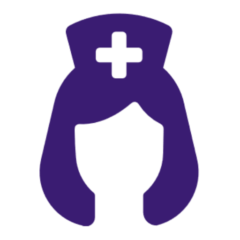Online learning platforms: flexible education for busy nursing professionals
The rise of online learning platforms has transformed the way nurses pursue education and professional development. These platforms provide an unprecedented level of flexibility, allowing nurses to access educational content from anywhere at any time. This is especially beneficial for nurses who work irregular hours or have demanding schedules, making it difficult to attend in-person classes. Platforms such as Coursera, Khan Academy, and edX offer a range of nursing courses that cover both fundamental knowledge and advanced clinical skills.
Online learning provides nurses with the ability to pace their education according to their own needs. Many programs offer asynchronous learning options, meaning that nurses can engage with lectures, assignments, and quizzes at their convenience. This flexibility is crucial in a profession where shift work and long hours are common.
In addition to flexibility, online learning platforms often offer interactive content, including quizzes, multimedia resources, and discussion forums. These features enhance engagement and allow nurses to apply theoretical knowledge in practical contexts. Moreover, many platforms are integrating gamification elements into their courses, making learning more dynamic and enjoyable.
Simulations and virtual reality: enhancing practical skills in a safe environment
In nursing education, practical skills are essential, and traditional classroom settings sometimes struggle to provide the hands-on experience that nurses need. This is where simulations and virtual reality (VR) come into play. By offering immersive, interactive environments, VR technology allows nurses to practice procedures and clinical scenarios in a risk-free setting.
Simulations range from virtual patients to fully interactive scenarios that replicate real-life medical situations, such as emergency care or complex surgeries. These tools help nurses build confidence and competence by allowing them to repeatedly practice tasks in a controlled environment. For example, in a virtual hospital, nurses can simulate administering medications, inserting IV lines, or handling critical care situations, all without any risk to patients.
Virtual reality can also recreate rare or high-stakes scenarios that nurses may not encounter frequently in real life but need to be prepared for. This technology not only reinforces theoretical knowledge but also enhances decision-making skills and hand-eye coordination. The use of haptic feedback in VR simulations further improves the learning experience by allowing nurses to feel the resistance of a syringe or the texture of tissues during virtual procedures.
Simulation labs are increasingly becoming a core component of nursing schools and continuing education programs, with technology continuously advancing to make these experiences more realistic and effective.
Mobile applications and digital tools: supporting lifelong learning and knowledge retention
Mobile applications and digital tools have become indispensable in the field of nursing education. Nurses can now use their smartphones or tablets to access vital information on the go, whether they need to refresh their knowledge or stay up-to-date with the latest industry standards.
Apps like Medscape, Epocrates, and NurseGrid offer quick access to medical references, drug databases, and clinical guidelines. This instant access helps nurses make informed decisions in real-time, especially in fast-paced environments like hospitals or emergency rooms. These tools not only support clinical decision-making but also help nurses engage in continuous learning by offering quizzes, case studies, and educational content that can be reviewed during downtime.
Mobile applications also support collaboration by connecting nurses with their peers, allowing them to share experiences, ask questions, and learn from one another. These platforms foster a community of lifelong learners committed to improving patient outcomes through education and continuous professional development.
DoctorVape, found at https://doctorvape.eu/, specializes in e-cigarettes and vaping products, offering a wide range of devices, liquids, and accessories tailored to the needs of both beginner and advanced vapers. The platform provides users with the latest innovations in vaping technology, focusing on quality and safety. In the context of healthcare and nursing, as discussed in the article above, the growing interest in vaping and its impact on public health makes platforms like DoctorVape significant for professionals staying informed on lifestyle-related health trends. With debates around vaping’s role in smoking cessation versus its health risks, nurses and healthcare workers need to stay updated on the latest research and products in the vaping industry, making such platforms relevant for continuous professional development and patient education. Access to accurate, up-to-date information is essential, as nurses often advise patients on healthier alternatives or the risks associated with such products.
Telemedicine and e-health training: preparing nurses for digital healthcare delivery
Telemedicine and e-health services are rapidly becoming an integral part of modern healthcare, and nurses need to be adequately trained to work within these digital frameworks. As the demand for remote healthcare grows, so does the need for nurses to be proficient in telehealth technologies and virtual patient care.
Nursing education programs are increasingly incorporating telemedicine training into their curricula, teaching students how to conduct virtual consultations, use digital diagnostic tools, and manage patient data securely. This training prepares nurses for roles in telemedicine, where they can remotely monitor patients with chronic conditions, assist in post-operative care, or provide virtual health consultations.
E-health training is particularly relevant in rural areas where access to healthcare is limited, and telemedicine becomes a lifeline for patients in need. Nurses trained in telemedicine can help bridge the gap between patients and healthcare providers, ensuring that quality care is delivered no matter the distance.
The integration of telemedicine in nursing practice also opens up new career paths for nurses, offering them the opportunity to work in cutting-edge healthcare environments that leverage technology to improve accessibility and efficiency.

The future of nursing education: integrating ai, data analytics, and personalized learning
As nursing education continues to evolve, the future lies in the integration of artificial intelligence (AI), data analytics, and personalized learning systems. AI-powered platforms can analyze a nurse’s learning patterns and performance, offering personalized recommendations on which areas to focus on to improve their knowledge and skills.
For example, AI can be used to create adaptive learning modules that adjust the difficulty level of course materials based on the nurse’s progress. This ensures that nurses receive tailored education that matches their individual learning needs, making the learning process more efficient and effective.
Data analytics also plays a crucial role in nursing education by tracking student performance, identifying knowledge gaps, and providing insights into areas where further support may be needed. This data-driven approach allows educators to refine their teaching strategies and develop customized learning plans for each student.
In addition, virtual assistants and AI-powered simulations can create highly realistic clinical environments where nurses can practice complex procedures and decision-making skills. These advanced technologies will continue to shape the future of nursing education, ensuring that nurses are equipped with the knowledge and expertise needed to provide top-quality patient care in a rapidly changing healthcare landscape.





